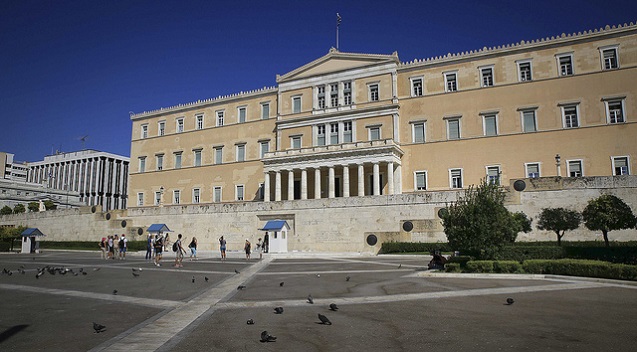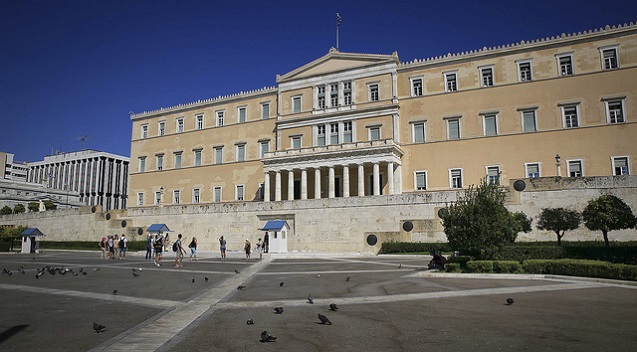
 psyberartist / Flickr)” width=”637″ height=”352″ />Parliament building, Athens, Greece. (Photo: psyberartist / Flickr)
psyberartist / Flickr)” width=”637″ height=”352″ />Parliament building, Athens, Greece. (Photo: psyberartist / Flickr)
It took nine months for the 396 cleaners that had been made redundant by the Greek Finance Ministry to gain their victory. Since September 2013, they have been on strike, selling T-shirts to survive and pay for banners and other activism materials, and facing police brutality.
In May 2014, the court of Areios Pagos ruled that the women, who used to clean tax and customs offices across the country, should return to their posts immediately, since the layoffs were not supported by any study that proved them to be in the state’s best interests. However, this was only the beginning. The Greek government declined to comply with the court’s ruling, and applied for an appeal. The case will be transferred to a higher court in September, but, according to the cleaners’ lawyer, Yiannis Karouzos, the case can’t be re-examined, and the first decision will only be technically checked for legal errors.
The Supreme Court that accepted the government’s request for an appeal issued the reasoning behind this decision, stating that “ensuring the continuation of the state’s financial policies (…) is linked with the general public interest, as opposed to the personal interest of each cleaner.” Setting aside the disturbing idea that the government’s austerity policies that have caused a steady rise in suicides and an unprecedented humanitarian crisis are “public interest”, could it be that these women simply cost too much to the state?
Numbers tell a different story. The Finance Ministry has hired private contractors to replace the redundant workers, even after the court decision ruling the women’s immediate re-hiring. This means that until the end of August, when the cleaners’ employment contracts expire, the state pays both the contractors and the cleaners – giving the latter 75% of their regular salary. This looks less like good logistics and more like a favor to those private cleaning companies – which, not surprisingly, were chosen using entirely opaque criteria.
As for the cleaners, there are no favors for them. 50 to 60 years old, many of them are single mothers, have slim chances of finding another job, do not qualify for a pension and will not be getting a compensation after being fired next month. It seems they have quite a lot on their plates. On top of that, they are viciously attacked by riot police on a regular basis. As a result, one of them now walks with the help of crutches, and another was hit on the head and caught on a video that went viral.
Despite this, their story fails to inspire fear. Just like with their colleague Konstanina Kuneva a cleaner who was attacked with vitriol because she spoke up through her trade union, but was recently elected as a European Parliament Member, the narrative can only be handled by policy makers and mainstream media for so long. Ultimately, it comes off as deeply empowering. So, no matter what the court rules in September, or how the state decides to bully these women next, the cleaners have already achieved a great victory. Instead of becoming a living example for Europe to see the Greek government’s ability to force austerity measures, violating even their own anti-labor laws, they have become a paradigm for resistance.
Media that fights fascism
Truthout is funded almost entirely by readers — that’s why we can speak truth to power and cut against the mainstream narrative. But independent journalists at Truthout face mounting political repression under Trump.
We rely on your support to survive McCarthyist censorship. Please make a tax-deductible one-time or monthly donation.